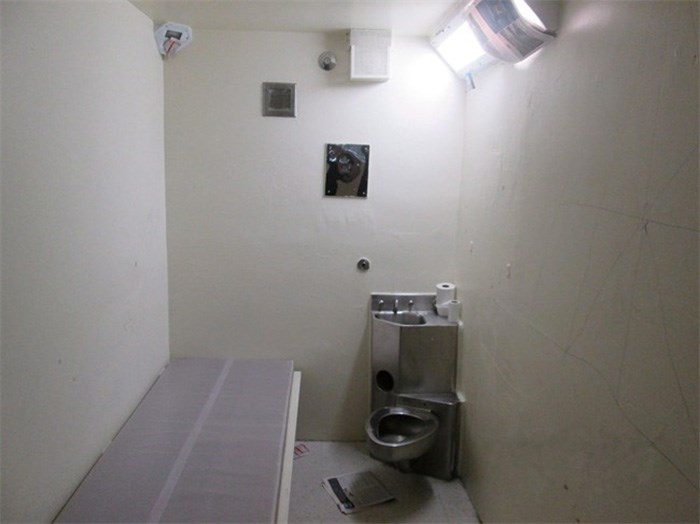 A solitary confinement cell is shown in a undated handout photo from the Office of the Correctional Investigator. A British Columbia Supreme Court judge has struck down a law that permits federal prisons to put inmates into solitary confinement indefinitely.THE CANADIAN PRESS/HO- Office of the Correctional Investigator
A solitary confinement cell is shown in a undated handout photo from the Office of the Correctional Investigator. A British Columbia Supreme Court judge has struck down a law that permits federal prisons to put inmates into solitary confinement indefinitely.THE CANADIAN PRESS/HO- Office of the Correctional Investigator
A British Columbia Supreme Court judge has struck down a law that permits federal prisons to put inmates into solitary confinement indefinitely.
Justice Peter Leask says the practice of isolating prisoners for undefined lengths of time is unconstitutional.
The British Columbia Civil Liberties Association and the John Howard Society filed the legal challenge in 2015, calling solitary confinement a cruel and inhumane punishment that can lead to severe psychological trauma and suicide.
The Crown argued the practice is a reasonable and necessary tool when prisoners pose a threat to others or are at risk of being harmed by the general prison population.
Leask concluded in his judgment released Wednesday that prolonged confinement places all federal inmates in significant risk of serious psychological harm, including mental pain and suffering, and puts them at increased risk of self-harm and suicide.
The written decision says the risk of harm is intensified in the case of inmates with mentally illness.
He says while many acute symptoms are likely to subside when prisoners are brought out of segregation, "many inmates are likely to suffer permanent harm as a result of their confinement."
The federal government introduced a bill in June that would set an initial time limit for segregation of 21 days, with a reduction to 15 days once the legislation is law for 18 months.
The government tried to stop the trial, saying legislation introduced earlier this year would impose a time limit on solitary confinement terms, but the judge allowed the case to proceed.
![]()


